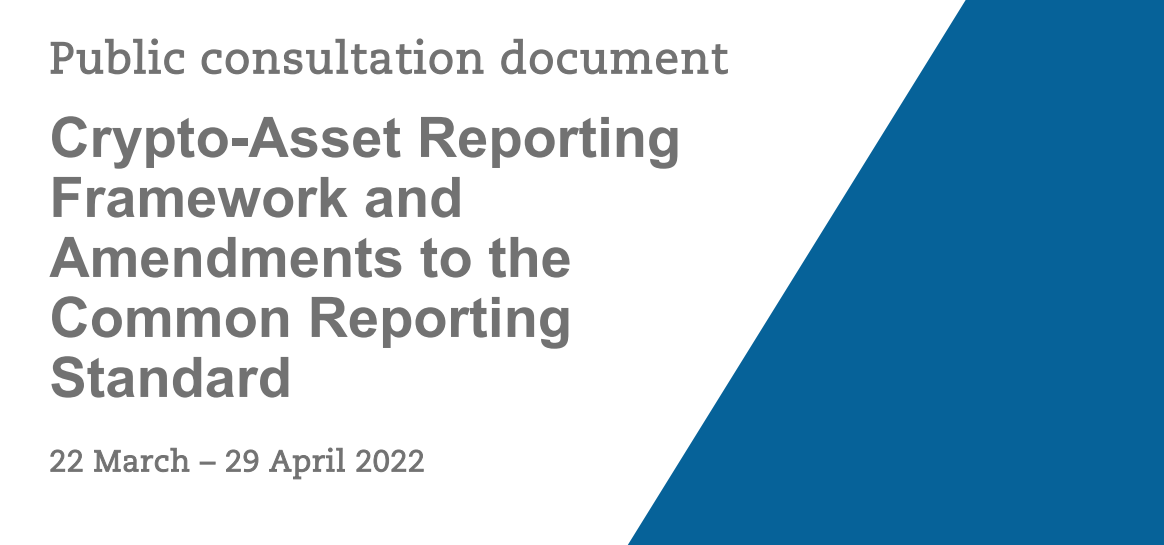Tax authorities are looking for your cryptos

8 years after tax authorities started to look for your financial assets through Common Reporting Standards ("CRS"), they now have a new target - your cryptos on hand.
Organisation for Economic Co-operation and Development ("OECD") released a public consultation document introducing new framework to provide for the reporting and exchange of information with respect to crypto-assets and naming the document Crypto-Asset Reporting Framework ("CARF").
After the end of the consultation, OECD will also develop the exchange instruments and technical solutions needed to support reporting and exchanges pursuant to the CARF. They will report the revised CARF to the Indonesian Presidency of the G20 for its October 2022 meeting. Once approved, the countdown of its implementation will start.
CARF introduces rules and commentary to faciliate the collection and exchange of your cryptos by Crypto-Asset intermediaries (ie. crypto exchanges) to tax authorities. Tax man will know much about your cryptos, transactions and transfers after transposing and legislating these rules into domestic law.
When OECD introduced CRS collecting and exchanging the financial information of individuals and banks from financial intermediaries in 2014, the crypto industry was still in its infancy. Bitcoins were not considered as Financial Assets but only speculative digital numbers. Mt. Gox, a Bitcoin exchange handling 70% of global Bitcoin Transaction in early 2014, ceased operation months after due to loss and theft of hundreds of thousands of bitcoins leading near zero trust on crypto exchanges that tax authorities were not too concerned. Major exchanges nowadays like Coinbase and Binance were either small or even non-existent.
The world is different today. The market capitalization of Crypto grows from US$ 10 billion in early 2014 to US$ 2 trillion in early 2022. The market is 200 times bigger when CRS was introduced. Intermediaries become even bigger players in the market and offer more services like derivatives, loans, staking, Defi. The most important development is that Crypto is no longer considered as speculation but asset with great investment value recongized by large institutions and high net worths. Tax authorities consider that it's time now to crack down as they want to have a bite on your huge profits on holding and trading the coins.
CARF is designed with 4 key building blocks, including
- the scope of Crypto-Assets to be covered
- the intermediaries subject to data collection and reporting requirement
- the transactions subject to reporting as well as the information to be reported in respect of such transactions
- the due diligence procedures to identify Crypto-Asset users and the relevant tax jurisdictions for reporting purposes
We will discuss the building blocks in depth to help you understand better on the new rules. What Crypto-Assets will be covered? Who will collect and report the information? What information will be reported? How information will be collected?
The good old days of unreported and untaxed profits will be long gone. You should start preparing now to avoid any compliance and tax risks in future.

